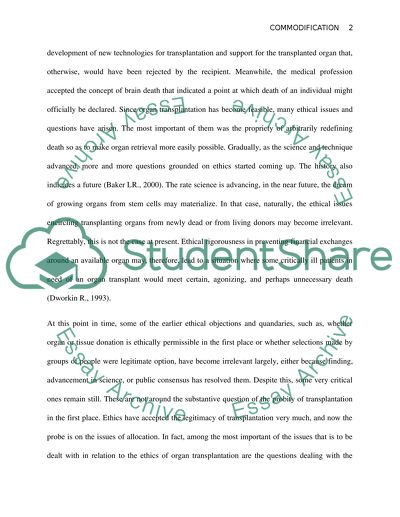The Commodification of Human Organs Essay Example | Topics and Well Written Essays - 3250 words. Retrieved from https://studentshare.org/miscellaneous/1517431-the-commodification-of-human-organs
The Commodification of Human Organs Essay Example | Topics and Well Written Essays - 3250 Words. https://studentshare.org/miscellaneous/1517431-the-commodification-of-human-organs.


